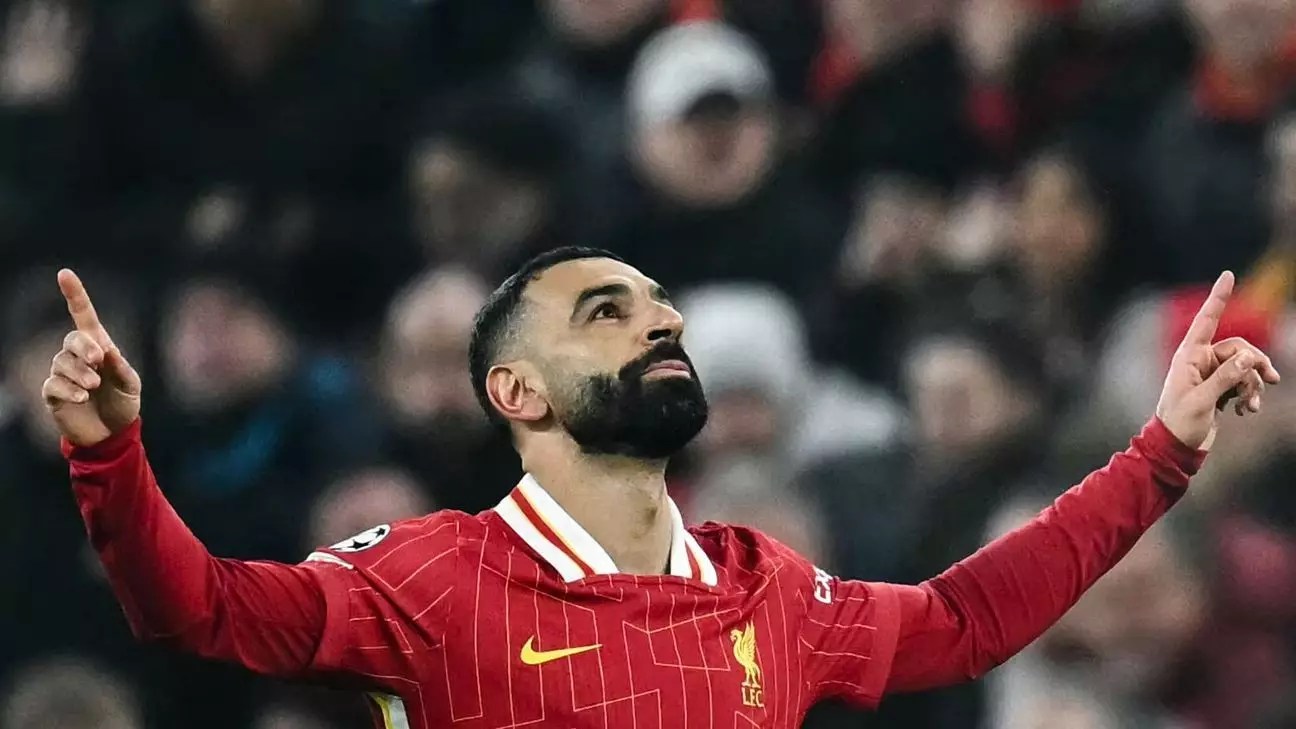The world of football is no stranger to debates concerning player superiority, and the latest to spark controversy revolves around Mohamed Salah, the Egyptian maestro currently mesmerizing fans at Liverpool FC. As discussions heated up on the eve of the UEFA Champions League clash against Lille, Curtis Jones, a rising talent on Salah’s own team, controversially mentioned Chelsea’s Eden Hazard as a more talented player than Salah. This statement ignited a wave of criticism directed toward Salah from some corners of the internet, but it also fuelled valuable insights into one’s perception of greatness in football.
Jones’s comments, made during an interview with Rio Ferdinand, illuminated an ongoing narrative among football enthusiasts. While it is not uncommon for emerging stars to respect legends of the game, the question remains: what constitutes ‘better’? In terms of sheer output and impact on the game, Salah’s contributions cannot easily be dismissed. Just 34 minutes into the match against Lille, he swiftly showcased his prowess by scoring a magnificent goal, a moment that not only settled the nerves of the Anfield crowd but substantiated his importance to the team.
This juxtaposition of opinions clarifies one essential point: while respect for Hazard’s legacy is warranted, Salah has consistently demonstrated his ability to influence matches decisively. The goal against Lille marked his 50th European goal for Liverpool, symbolizing both his individual brilliance and the effective synergy he shares with his teammates. Jones and Salah’s partnership illuminated the dynamic nature of modern football, wherein relationships between players can elevate performance and reshape team strategy.
Throughout the match, Liverpool faced challenges imposed by Lille, who arrived at Anfield with an impressive unbeaten streak. The initial stages were characterized by a stalemate where Lille’s defense appeared robust enough to contain Liverpool’s offensive threats. Yet, as the saying goes, “class is permanent”, and few exude class on the field like Salah.
Not only did Salah’s goal break the deadlock, but it also ignited an electrifying atmosphere in the stadium, underscoring the passionate connection between player and supporters. His ability to weave through defenses is not merely born from technical skill; it embodies a flair that has endeared him to fans globally. Salah’s continued excellence serves as a reminder of how vital he is not just for Liverpool’s success, but for the spectacle that football offers.
Even after Salah’s phenomenal opener, the match was far from settled. Lille’s Jonathan David equalized, putting pressure back on Liverpool. However, as any seasoned coach would know, the most significant moments often come from unexpected places. Enter Harvey Elliott, whose introduction proved pivotal. Scoring the second goal for Liverpool, and having a deflected shot turn into the match-winner, Elliott’s performance illustrated the depth of Liverpool’s squad, a quality that could very well propel them through the demanding fixtures in both domestic and European competitions.
The tactical work being implemented under the managerial leadership of Slot over the past months is commendable. The victory against Lille not only reflected Liverpool’s resilience but also clinched a new club record for the most minutes without conceding goals in the Champions League, surpassing even the illustrious 2005-06 season under Rafael Benitez. The collaborative efforts of the players and coaching staff exemplify a team-oriented approach that harnesses individual talents to achieve collective success.
As the accolades for Salah pile up, so too does the impending uncertainty surrounding his long-term future at Liverpool. With his contract reportedly nearing its expiration in the summer, whispers of his departure loom large. This talk resonates deeply, especially among the club’s fanbase, who have grown accustomed to his dazzling displays over the years.
Slot’s acknowledgement of Salah’s value to Liverpool encapsulates the sentiment held by many. The potential loss of a player of Salah’s caliber not only raises concerns about team performance but also places a question mark over the very future of Liverpool’s identity. Finding the right balance between respecting a player’s contributions and negotiating future arrangements becomes essential.
While debates over player hierarchy will continue unabated, there exists no denying Salah’s remarkable impact on Liverpool’s success and on football at large. His ability to consistently rise to challenges and secure critical victories only adds to the urgency for the club to solidify his status. As the clock ticks down on his current contract, fans and pundits alike hope for a resolution that will keep their talisman in the red jersey for years to come.


Leave a Reply